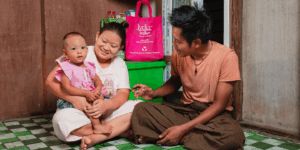Mamie’s Journey: Stories of Sexual and Reproductive Health in the Democratic Republic of Congo
Among the various challenges faced by the Democratic Republic of Congo, maternal and infant mortality rates are among the highest in the world. This is in addition to high fertility rates, a growing population in an unsafe environment and low contraceptive use. Increasing coverage of family planning in the DRC is one of the most effective ways to reduce this problem. Through its Training and Education department, DKT DRC has worked towards bringing awareness to the most remote regions of the country. We help people understand the benefits of contraception in their individual situations. Headed by Mamie Kasay, Mamie’s Journey is a collection of stories and testimonies of girls, women and men in the DRC throughout the year 2021 to share the same message: contraception can save lives.
Teenage Pregnancy
Adolescents and young adults represent a large portion of DRC’s population facing numerous challenges – notably, early pregnancy and childbearing, and STIs. Our Training and Education team has identified that there remains the need for integration between school and youth health centers using mobile clinics and school visits to disassociate sexual intercourse and unintended pregnancy. Having sex does not bind a young woman, particularly an adolescent, to become a mother, thus the importance of contraception for adolescents and family planning for young adults. Below are a few stories of teenage girls we have encountered in our journey.
Brigitte, 14
Brigitte is young girl with a one-year-old child and unfortunately the child’s father is not around. Even more distressing is the fact that Brigitte’s story is not unique in the DRC.
According to the National Institute of Statistics, the country has more than 21 million adolescents between the ages of 10 and 19 and women aged 20 to 24 give birth before their 18th birthday. Adolescence is a crucial period for girls that is riddled with various challenges such as child marriage, unintended pregnancy, sexual exploitation and abuse. It is comforting to see that Brigitte’s mother, Marie, has decided to help her daughter and not abandon her to her own devices. Marie shares, “Some people feel it is wrong that I ask for contraception for my daughter because she is so young. I struggled with my decision, but after speaking with DKT’s community mobilizers, I understand that it is important for me to help my child. What people don’t always understand is that I also had her when I was young, and I am single mother today raising her and her child even though I don’t have enough money. I want my daughter to be able to do the things that I was not able to do like finish school and get a decent job. I cannot stop her from having sex, but I can help her to not get pregnant again.”
Merveille, 17
Merveille, a 17-year-old mother of two decided to get an implant because she wants to go to college. She gave birth to her first child at 15 and her youngest is only nine months. Merveille’s children have different fathers, and both offer no help. “I have not been very lucky in love,” Merveille shares with a member of our team with a sigh, “and even though I would like to have more children in the future, because I like being a mom, I don’t want to get pregnant now with a man that will leave me and deny our child. In a year I will obtain my high school diploma and if I am on contraception, I will be able to take care of my two babies, focus on school and get a job.”
Jessica, 17
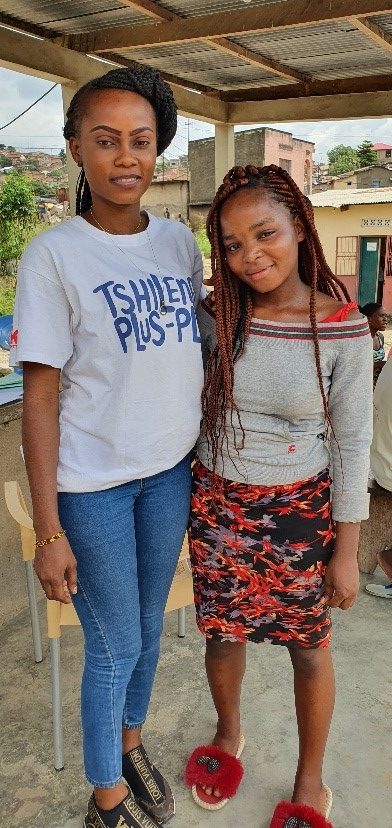
Jessica (wearing a skirt) poses next to a DKT youth ambassador.
Jessica is 17 and in the 11th grade. At 16 she got pregnant but decided to terminate the pregnancy. Jessica met with a DKT youth ambassador during a campaign held at a local health center and asked to know more about different methods of contraception. Her predicament is common among many teenagers; she states, “I did not know I could get pregnant so easily”. There are many teenage girls that are in “relationships” but have no idea how to protect themselves against unwanted pregnancies. “I don’t want to become a single mom and made fun of in my neighborhood. If I decided to keep my pregnancy, I would have to drop out of school, and that is not something I don’t want to do, so it’s best for me to get the implant.”
Maguy, 16
Like Jessica, 18-year-old Grace does not have any children, but has had an abortion. She is in her third year of high school and is studying to become a seamstress. “It may sound odd, but I didn’t know I could get pregnant so easily. I want to finish school and I want to make sure I don’t get pregnant before I get married. I have also told some of my friends about the campaign so that they can also get a method. I want to be independent when I have my children.”
Betty, 15
Betty, dressed in the red and yellow skirt was accompanied by her mother to a health center. Like Maguy, Betty does not have children but explains, “I grew up without my dad and because my mother doesn’t have enough money to send me to school, I am only in the 6th grade, I don’t want my child to suffer. I told my mom that I was having sex and after hearing DKT’s community mobilizers talk about contraception, she decided to take me to the clinic.” Betty’s mother, who stands next to her on the photo, is happy that her daughter is able to receive an implant. “I don’t want my daughter to repeat the cycle. Because she is already having sex, I want to make sure that she does not get pregnant. I can barely provide for her now, so adding another child will be very difficult for me.”
Single Motherhood
For most young single mothers in the DRC, motherhood is not something they wanted, as most explain it, “it is something that just happened”. The odds are against most single mothers in the DRC where employment is hard, and women are particularly vulnerable. According to a 2014 study by the BMC Public Health, a peer-reviewed journal, having a single mother is one of the greatest risk factors for children dying before the age of five in the DRC. In the DRC, women face a range of threats that are difficult to manage because of the insecurity that plagues the country. These circumstances make it difficult for single mothers to raise their children.
Dorcas, 21
Dorcas is a single mom with two children. Although she works as a seamstress to provide for her children, Dorcas explains that this is still not enough. Her children’s fathers do not participate and are not involved. “I can’t depend on anybody to help me with my kids and being a seamstress allows me to work from home and take care of my kids. If I have to take care of my children by myself, I might as well be able to make my own decisions when it comes to contraception.” Dorcas opted for an IUD and is currently working on going to college.
Martine, 21
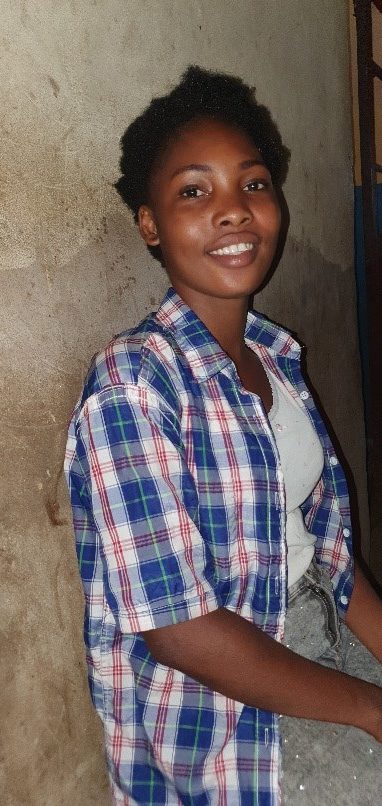
Martine is a bubbly 12th grader. She loves school, enjoys hanging out with friends, and above all wants to be the best mother she can to her child.
“Two years ago, I had an abortion. It was a traumatic experience for me, but I knew that my parents would have kicked me out of the house had they known I was pregnant. It was just too complicated to be 19, going to school, and pregnant. I really thought I would not get pregnant again, at least not before I finished school, but I did. I really could not go through with a second abortion…so I decided to keep the pregnancy.
I am happy to be a mom, but being a single mom is not easy. My parents’ marriage almost fell apart because of me and I can tell that I am treated differently from my siblings. After my baby was born, I went to a clinic to see a friend and I was told that DKT was organizing a training for providers and that contraceptive methods were being administered for free. I have already been on contraception before, but I did not know it was expiring. Madame Mamie’s team spoke with the providers at the center, and I was administered a longer lasting method.
Hopefully, one day I will have more kids, but for now I rather not.”
Blandine, 21
When Blandine speaks she tends to look down. “I’m just shy” is what she says when asked why. Once you hear her story, you can understand. At just 21, she is the mother of two and has had one abortion. Blandine keeps to herself and only speaks when she is spoken to. Although she tries not to share too many details about her life, one can understand that her family life is difficult. Blandine does explain that up until her visit at the clinic during the family planning campaign, she did not know much about contraception and never had sex education. She had her first child at 17, her youngest at 20 and dropped out of school in the ninth grade. Blandine dreams of being able to go back school, find a job and raise her children –even if it means having to do so on her own. She chose a 5-year implant to ensure that the steps she takes towards achieving her goals are not interrupted.
Couples in Need of Contraception
For DKT, women’s empowerment and educating men are critical to the success of family planning. Yet, regardless of their marital status, women in the DRC still have a difficult time avoiding unplanned pregnancies, because they do not have access to modern family planning methods. This is further exacerbated by deeply rooted traditions and religious views that exist around family size, gender roles and the use of contraception.
Nelly, 26
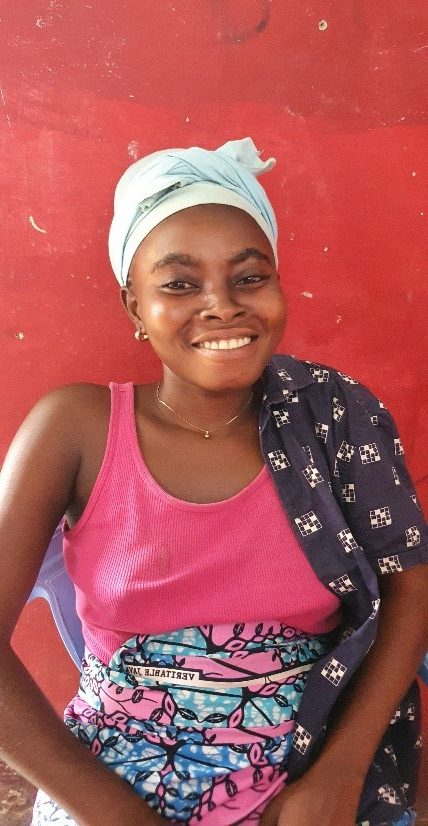
Nelly is 26 years old and mother of two children (years 7 and 3) with her boyfriend. At 19, after having her first child, she decided to go on birth control. However, four years ago she decided to stop and got pregnant for the second time.
Although Nelly’s relationship is not conventional by any means in the DRC context, she has a committed partner who is a firm believer in contraception. Not much is known about the role women play in decision-making power over contraception use, except that men usually have a say in it. Nevertheless, this couple shows us that with the right information, they can make decisions together for their family’s future and well-being. Nelly and her boyfriend decided to take a five-year implant.
Chance, 32
Chance, among many things believes that her name has always brought her luck. Dressed in a white head scarf and shying away from the camera, Chance explains that she is the mother of five and is happily married. “I like my name because I think it has given me five kids and a husband that loves me. But both my husband and I know that having five kids is a lot for our family, especially since my last two babies are only a year apart. My husband works very hard for us to be comfortable, but times are hard. My friend, Zawadi told me about the campaign at our local health center and said that she just had an IUD inserted. She encouraged me to do the same and after talking with my husband he also agreed…see I was lucky.”
Financial burden of an additional child or unintended pregnancy are among the main reasons why couples chose to use a family planning method. Despite certain taboos that surround family planning within communities, we see that couples are realizing the importance of opting for a family planning method, but others still need help. In the DRC, as in other countries, women are sometimes faced with the hard decision of seeking contraception in secret. The culture of silence around sex and sexuality is prevalent and tends to be the exclusive domain of male partners. We met many women who expressed that discussing contraception may threaten their partners’ sense of control and create discord within the family. During our campaigns we found that both women and men admitted that women usually do not have the right to independently act upon their reproductive preferences.
Safe Abortion Care
Unsafe abortions are a real public health problem and represent a social injustice in the Democratic Republic of Congo (DRC). Available data indicates that 30% of maternal deaths are attributable to unsafe abortions, often performed in very poor conditions with unqualified providers, inadequate technical platforms and obsolete procedures. To many, including health providers, abortion is seen as a repudiation of traditional female roles of motherhood and procreation and to keep it a secret, women terminate their pregnancies at the cost of their own lives. Our training brings awareness to providers (doctors, nurses, midwives) on the dangers of using curettes and other abrasive instruments for uterine evacuations. Through Safe Abortion One Day Training (ODT) and because we are currently became the only authorized vendor of Mifepack – the WHO recommended molecule for self-managed uterine evacuation, to be sold to pharmacies, we help address this issue by raising awareness, educating and training sexual and reproductive health service providers.
Dr. Boniface Kambale Kambulende
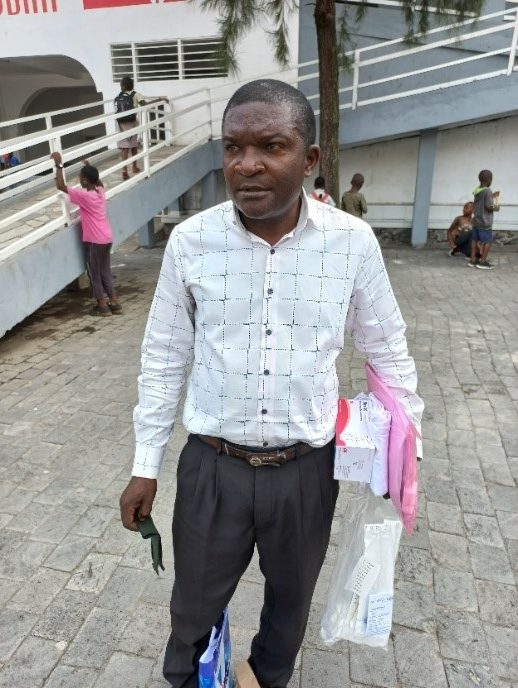
Head of Kisharo Hospital, Dr. Kambulende expressed his content with DKT’s one day training. “Our hospital is not far from Goma, but we are still in a rural area, and we receive many cases of post abortion complications and even postpartum hemorrhages, but there comes a point where our knowledge is limited. DKT’s one day training teaches us innovative techniques that can be used and save lives, such as the MVA. I feel more confident in responding to our patients’ different problems including abortions and postpartum hemorrhage. My patients mean a lot to me, and I cannot thank DKT enough for its continued support to Congolese women.”
Dr. Dillon Kambale
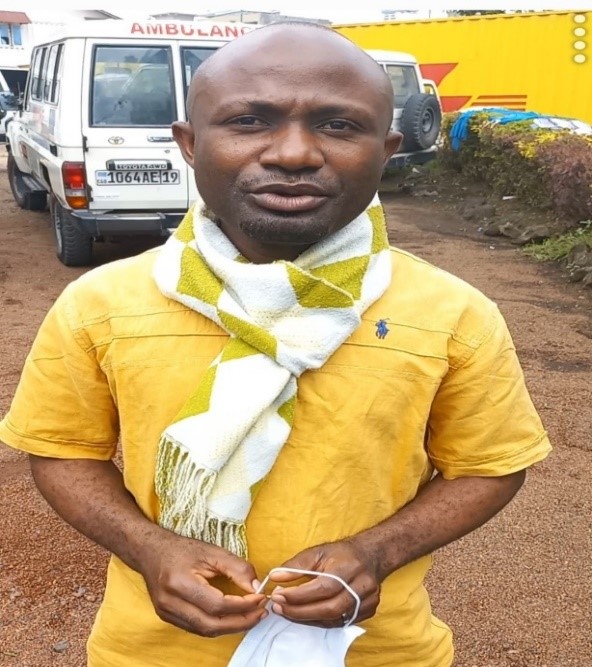
A physician at the Kiwanja Reference Health Center, Dr. Kambale expressed gratitude for training. “I am very grateful to DKT for the support given to us during training on post-abortion care. The notions we learned today will allow us to put them into practice and help women. Before this training, we used the MVA syringe at our center, but not correctly. I can’t imagine how many lives we put at risk. Can you believe that because we did not know how to use the syringe, we went back to using curettes! I also must admit that DKT’s presentation of Mifepack was truly something that I enjoyed. I can offer different solutions for women in need.”
Conclusion
Our stories do not end here, every day at DKT we are given the opportunity to make a difference in the lives of girls, women and even men. Despite negative perceptions, we continue to push the envelope to discuss and bring awareness on issues that are real but not discussed. More importantly is the fact that we are able to draw out empathy from people who previously could not understand the plights of others. Our team’s strategy is to open dialogue and provide solutions to address issues and stigma that affect people in so many ways. We strive to help change attitudes and educate and as per our strategy, wherever we go, we are there to stay.
DKT DRC would like to thank our donors and partners for their support in making a change where change is needed.




